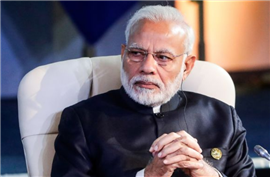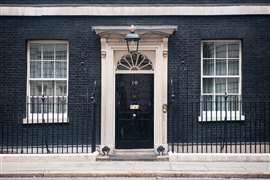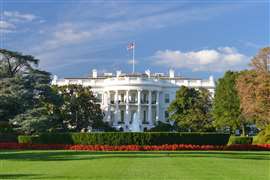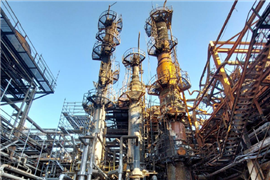2024 is the biggest election year in history. What could it mean for construction?
03 January 2024
As 2024 arrives, the Construction Briefing turns its thoughts to the unprecedented number of general elections taking place across the world this year and what five of the most significant could mean for construction in those countries.
 Image: bizoo_n via AdobeStock - stock.adobe.com
Image: bizoo_n via AdobeStock - stock.adobe.com
For many politicians around the world, 2024 is a make-or-break year.
The Economist has described this as the “biggest election year in history”. Voters are going to the polls in 44 national-level elections according to American University’s Global Elections Tracker.
While some elections, like the Russian presidential election, look like foregone conclusions, other races like the US presidential election (see below) look set to be much tighter.
The Construction Briefing considers five significant national-level elections taking place this year and what they could mean for the construction industry:
European Union
 European Parliament building in Brussels (Image: Grecaud Paul via AdobeStock - stock.adobe.com)
European Parliament building in Brussels (Image: Grecaud Paul via AdobeStock - stock.adobe.com)
Elections to the European Parliament are due to be held on 6-9 June this year. A total of 720 seats, with a certain number allocated to each member country, are up for grabs.
The elections take place at a tense time in Europe. Over the past five years, the European Commission (EC) has set out a vision for getting Europe to meet its net zero target by 2050. Combined with that, is a renewed drive for Europe to achieve greater energy security after Russia’s invasion of Ukraine exposed the reliance of certain countries like Germany’s reliance on Russian gas. The construction industry is set to play a key role in delivering both of these objectives.
But far right, Eurosceptic parties have risen in the polls in several countries, including in the Netherlands, where Geert Wilders’ PVV party shocked the political establishment and commentators with a surprisingly strong performance.
Wilders has previously called for more oil and gas extraction in the North Sea and for a halt in the construction of wind and solar farms.
As political parties across Europe grapple with how to spark an economic recovery, create jobs and reverse declines in living standards then policies on climate action and the energy transition could be up for debate or even reversal, particularly if far-right parties continue to grow in popularity. What that means for construction opportunities in the bloc remains to be seen.
India
 India’s Prime Minister Narendra Modi (Image: Government of India, GODL-India via Wikimedia Commons)
India’s Prime Minister Narendra Modi (Image: Government of India, GODL-India via Wikimedia Commons)
India’s Prime Minister Narendra Modi and his Bharatiya Janata Party (BJP) look set to win a third five-year term when the country goes to the polls over several weeks between April and May.
Fresh from hosting the G20 summit in September last year, Modi is riding a geopolitical and economic high and even with 28 different opposition parties agreeing to contest the national elections jointly to avoid splitting votes, it looks unlikely that they will be able to unseat him.
Assuming a Modi win, there is likely to be continuity in its ramping up of infrastructure spending as India targets becoming a developed country by 2047.
By 2027, India is expected to become the world’s third-largest economy, passing Japan and Germany, as its GDP hits $5 trillion, according estimates by the International Monetary Fund (IMF).
On its way to those milestones, India is expected to spend nearly Rs 143 lakh crore (US$1.7 trillion) on infrastructure every year from 2024 to 2030, more than twice the Rs 67 lakh crore (US$800 billion) it spent in the previous seven years, according to Crisil, an S&P Global Company.
Roads, highways, power transmission, renewable energy and ports are all likely to see significant investment, with increasing value of individual projects and a significant number of mega-scale projects, according to Crisil.
South Africa
 The Union Buildings in Pretoria, South Africa (Image: Arnold via AdobeStock - stock.adobe.com)
The Union Buildings in Pretoria, South Africa (Image: Arnold via AdobeStock - stock.adobe.com)
It’s against a backdrop of crumbling infrastructure and high levels of corruption, including within the construction industry, that South Africa will go to the polls to elect members of Parliament later this year. Whichever party wins a majority will then go on to choose a president.
South Africa has been ruled by the African National Congress (ANC) for 30 years, ever since the end of apartheid and Nelson Mandela’s election as president.
The ANC is expected to remain the largest party, albeit with a reduced majority and President Cyril Ramaphosa kicked off the first of a series of campaign rallies in September last year.
The US Department of Commerce’s International Trade Administration has highlighted the fact that infrastructure development will be “critical” to South Africa attaining its long-term economic and social goals.
South Africa’s government approved the first phase of its National Infrastructure Plan 2050 (NIP) in 2022 aimed at strengthening the institutions responsible for infrastructure planning and delivery.
The plan first focuses on energy, water, freight transport and digital infrastructure, before a second stage addresses distributed infrastructure and municipal services.
But the continued programme of rolling blackouts across the country (known as “load shedding”) demonstrate that the government needs to make more progress more quickly to overhaul the country’s ageing energy grid. The average South African spent five hours a day without electricity in 2023, according to blackout statistics compiled by independent energy analyst Pieter Jordaan.
Separately, the government knows it has a corruption problem in construction but is struggling to deal with it. The ANC-led government has attempted to crack down on contractors and developers caught cheating the public purse, amid a chronic problem with construction firms performing shoddy work on public sites before claiming incapacity to continue after claiming portions of public funds.
On launching the ANC’s campaign, Ramaphosa claimed that South Africa had made progress under his party but also said he wanted to be transparent about “mistakes” it has made.
South Africa’s main opposition party is the Democratic Alliance under leader John Steenhuisen. It has agreed to form a coalition with six other smaller parties to unseat the ANC if it fails to win an outright majority next year. But it has ruled out working in coalition with the ANC or the country’s third-largest party, the leftist Economic Freedom Fighters, led by expelled ANC Youth League president Julius Malema.
UK
 Entrance door of 10 Downing Street in London (Image: pcruciatti via AdobeStock - stock.adobe.com)
Entrance door of 10 Downing Street in London (Image: pcruciatti via AdobeStock - stock.adobe.com)
Prime Minister Rishi Sunak has to call a general election in the UK at some point within 2024.
That’s because 17 December this year will mark exactly five years since Parliament first met after the 2019 general election and there is a maximum period of five years between general elections.
Sunak’s Conservatives are behind in the polls and a survey by construction consultants Gleeds released in November last year showed that around two-thirds of construction professionals expect a victory for the opposition Labour party.
Construction companies in the UK are still concerned about elevated interest rates and inflation, which is making it harder to get new projects off the ground, according to the survey.
Around 40% said they would prefer a Conservative victory, even though only one in five said that they had confidence in the current government to improve market conditions and increase construction output, in a separate survey in the summer last year.
Meanwhile 30% of construction professionals said they didn’t think any political party would offer the greatest support to the industry.
Given that an election still hasn’t been called, there is little detail on how the policies of a would-be Labour or Conservative government could impact construction.
One area where both sides have been more vocal is on housing. Sunak’s government scrapped a target to build 300,000 homes a year in England in the spring of last year and following that said he wanted to see more construction focused on inner city areas and avoid “concreting over the countryside”.
By contract, Labour leader Keir Starmer promised that 1.5 million new homes would be built across the country within five years of a Labour government in a speech to the Labour Party Conference in October last year.
And after Sunak scrapped the second phase of the high-profile, multi-billion-pound HS2 high-speed railway, Labour’s Starmer said he could not commit to reversing the move.
US
 (PHOTO: Adobe Stock)
(PHOTO: Adobe Stock)
The United States is set to hold its presidential election on 5 November 2024.
It pits the incumbent President Joe Biden, who at 81 is the oldest person ever to occupy the Oval Office, against former President Trump, three years his junior.
In the 2020 presidential election, Americans cast 158 million ballots but the result was decided by around 43,000 voters across three states – Arizona, Georgia and Wisconsin.
The 2024 election looks like it could be similarly close, with the two candidates reportedly neck and neck a year out from the election.
Biden has presided over America’s most ambitious infrastructure investment plan in generations. His administration claimed in November last year to have earmarked $400 billion for more than 40,000 projects across 50 states in the two years since the Bipartisan Infrastructure Law was introduced, in 2021.
But associations representing the construction industry in the US have been less pleased with amendments the Biden administration has made to labour laws, with Associated Builders and Contractors (ABC) and the Associated General Contractors of America (AGC) both challenging the government in court over changes to Davis-Bacon Act, which governs what level of wages workers receive on federally funded projects.
A new Trump administration would likely take a tougher stance against labour unions and construction industry bodies would be expected to lobby to have the changes reversed.
It’s less clear what, if anything, Trump would do with the Bipartisan Infrastructure Law in the event of his victory in the presidential election. He has not publicly stated his position on the law but in 2021, he voiced his opposition to the Bill before it became law, warning that it would be “very hard” to endorse Republican lawmakers who voted in favourite of the $1.2 trillion package on the grounds that it would be “used against the Republican Party” in the 2024 election.
He has also previously indicated that he would prefer to see more private investment in infrastructure. But as to whether he would try to scale back the law, divert funding from it, or even repeal it altogether would depend on a range of different factors. They are likely to include the law’s popularity, the political climate and the state of the economy.
For a more in-depth look at what the outcome of the US presidential election could mean for construction in the country, watch out for an article by International Construction editor Andy Brown later this year.
CONNECT WITH THE TEAM









